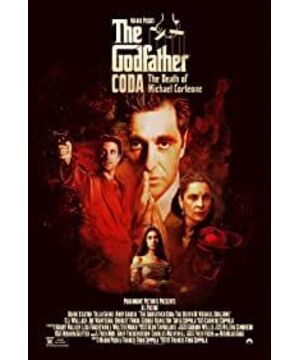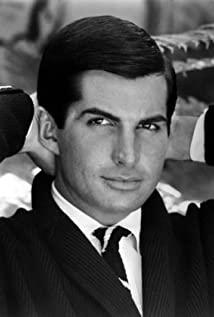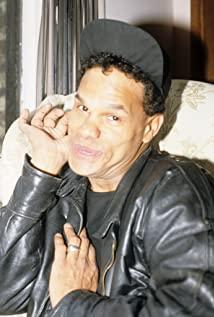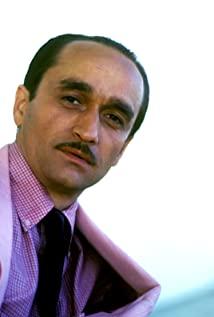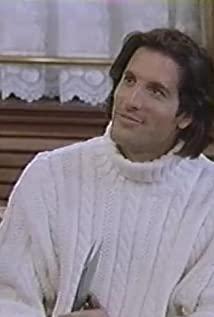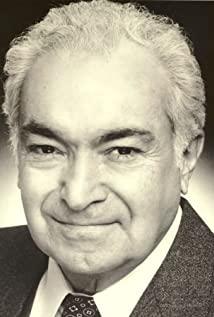Everyone makes mistakes, and the godfather is no exception.
Michael Corleone, known as the "Second-Generation Godfather" by the people of the rivers and lakes, took the heavy responsibility for the critical survival of the family and used bloody means to complete the expansion of the family business.
For this reason, he committed an unforgivable sin and paid the price of family breakdown.
He wants to redeem his sins, he wants to make up, he wants to turn the tide.
It has always been like this, but it is always impossible to get what you want.
"The Godfather 3" is his last fight. He wants Corleone's surname to completely get rid of the gang label, he wants his children to go on the right path, and he wants to win back his own life.
This is also the "Godfather behind the scenes" Francis Ford Coppola's last fight.
In the 1970s, he became famous with two "Godfather" movies, from a little-known little boy to a great Hollywood director, just like Michael Corleone grew into a godfather.
In the 1980s, Coppola movies began to fall apart, with neither artistic achievements nor box office results. Coppola, who is heavily in debt and helpless, can only pin his last hope on the golden sign of "Godfather". If he fails, his film life may end there.
At this time, his goal is not to surpass the first two works in the series. The time and resources given by the management Paramount have set the upper limit of "The Godfather 3."
In the 1990s, all kinds of popcorn movies were overwhelming, and gangster movies were no longer the darling of the market. Martin Scorsese’s carefully crafted "Good Guy" cost 25 million U.S. dollars, and in the end it only sold more than 46 million at the box office.
Therefore , the production environment of "The Godfather 3" is far less than that of the previous two series, and the direction of creation is therefore completely different.
Coppola has always believed that "The Godfather 2" has fully told the story of the Corleone family, and rejected the number of invitations from Paramount to shoot the third part. If he hadn't fallen in the 1980s, the godfather wouldn't have had a trilogy.
Maybe God wanted to keep watching, so he waved his hand and forced Coppola to make a final chapter in the series. At that time, Coppola was depressed, but he still had a bit of backbone, and directly rejected the script that Paramount had asked someone else to write.
He has no intention of telling a grand gang story, like the idea of the CIA and the Corleone family to assassinate the Central American dictator, which is no longer appropriate.
He thinks "The Godfather 3" can only express and supplement.
Express your frustrated emotions for many years;
Complement the role arc of Michael Corleone.
Therefore, the film is clearly different from the previous two series. It is not so much the worst in the series, it is really an "alternative series".
The first is that the story line is simpler and clearer. After a series of box office failures, Coppola finally learned how to take care of the audience's feelings. Of course, another reason is the lack of time for script creation.
"The Godfather" talks about gang struggle, power transfer, family education, etc., involving dozens of characters;
"The Godfather 2" is more complicated. On the basis of the internal ghost line and the political line, it also inserts a large number of flashbacks. The 202-minute duration is really not covered.
"The Godfather 3" returns to a neat linear narrative, with only three main things:
Michael Corleone wants to complete the thorough whitewashing of the family through a religious route;
And his family conflicts;
Big brother Sonny's illegitimate son Vincent fights with Zasa's gang.
Only about 10 main characters can influence the plot.
Michael’s camp, a family of five, plus Vincent of six;
Zasa camp, Zasa one;
"Uncle" camp, Altobello one;
Religious camp, two priests, plus an Italian consortium representative Lucchesi.
The second is the increase in religious drama.
The word "Godfather" itself comes from religion, but it was not until "The Godfather 3" that the elements of the Vatican, the Pope, and the priest were truly integrated into the plot.
Then the film has also narrowed from a criticism of the entire American society and politics to a criticism of the collusion between churches and consortia and corruption.
But the truths are similar, and they all want to express that the white road is sometimes darker than the underworld.
The third is Michael Corleone's mood and attitude.
Michael in the first two movies is young and promising, even if he is not so willing to take over family affairs, he still recognizes it. No matter what difficulties he encounters, he can rise to the challenge, he should be calm is restraint, and when he should take action, it is a bloody massacre.
The story of "The Godfather 3" takes place 20 years after "The Godfather 2" , and Michael has been polished by the years. What he did was not to fight, but to stop fighting.
He didn't want to resort to violent methods to increase his sins.
Coppola injected his emotions into Michael, and they all wanted to get rid of their fate and make up for their past mistakes.
Coppola messed up his movies and left his family in poverty. He had to do something. Filming "The Godfather 3" was his salvation.
Michael has a blood debt. His wife Kay fears him and alienates him. His son Anthony has a childhood shadow and is unwilling to inherit his career. Only his daughter Mary and sister Connie are willing to stay with him. He must thoroughly cleanse his blood debts in order to win back the harmony of the whole family. To win the "Li Li" group is his salvation.
Unlike Coppola, Michael's fault was forced to commit. He had no choice at all, and the ruthlessness of fate was more extreme in his body.
When he realized that business wars were more vicious than gang fights, and realized that he still had to use ruthless tricks, his face was full of anger and helplessness;
When he suffered from diabetes and confessed to the cardinal, his face was covered with paleness and grief;
When he prayed for Kay's forgiveness, his face was full of sincerity and self-pity.
The "Godfather" series is essentially a story of Michael, a story of a good man falling into sin. Coppola hopes that the film will express the theme of "retribution for evil", rather than the gang doing charity and loyalty, so that you don't have to pay for your life if you kill.
You must be punished if you commit a sin, no matter if you are a good person or a bad person. Punishing Michael is not law, but fate. When the massacre order was issued, he didn't know that fate had deprived him of his life and sovereignty for life.
After all, he can't live according to his own will, after all, he has to embark on a lonely road.
In "The Godfather 3," he is tortured all the time, from opponents, from family, and from himself.
However, Coppola felt that it was not enough.
He wants to inflict critical damage on Michael at the end.
The three parts of the "Godfather" series all started from the group play and ended in the killing of parallel editing, very neat and powerful.
Only "The Godfather 3" still has a fallback-Michael received the most direct punishment.
More painful than flesh and blood, I don’t know how many times the mental crit.
From the silent cry to the cry of the soul, Al Pacino drew a heart-piercing end to this role.
This is the collapse of a gang boss, but also the collapse of a father.
He wants to redeem his sins, he wants to make up, he wants to turn the tide.
It has always been like this, but it is always impossible to get what you want.
Coppola is much luckier than Michael.
"The Godfather 3" finally won the global box office of 136 million US dollars, ranking 16th in the year, and nominated for 7 Oscars. Coppola finally won back the trust of major studios.
It's just that he withdrew from the film industry after " Rainmaker " in 1997, and in 2007 he took "Youth Without Youth" and collected more than 2 million box office. He basically didn't make much film, and he was in a semi-retired state.
Even so, Oscar awarded him a lifetime achievement award in 2010.
He has completed the personal salvation that Michael did not complete.
View more about The Godfather: Part III reviews


